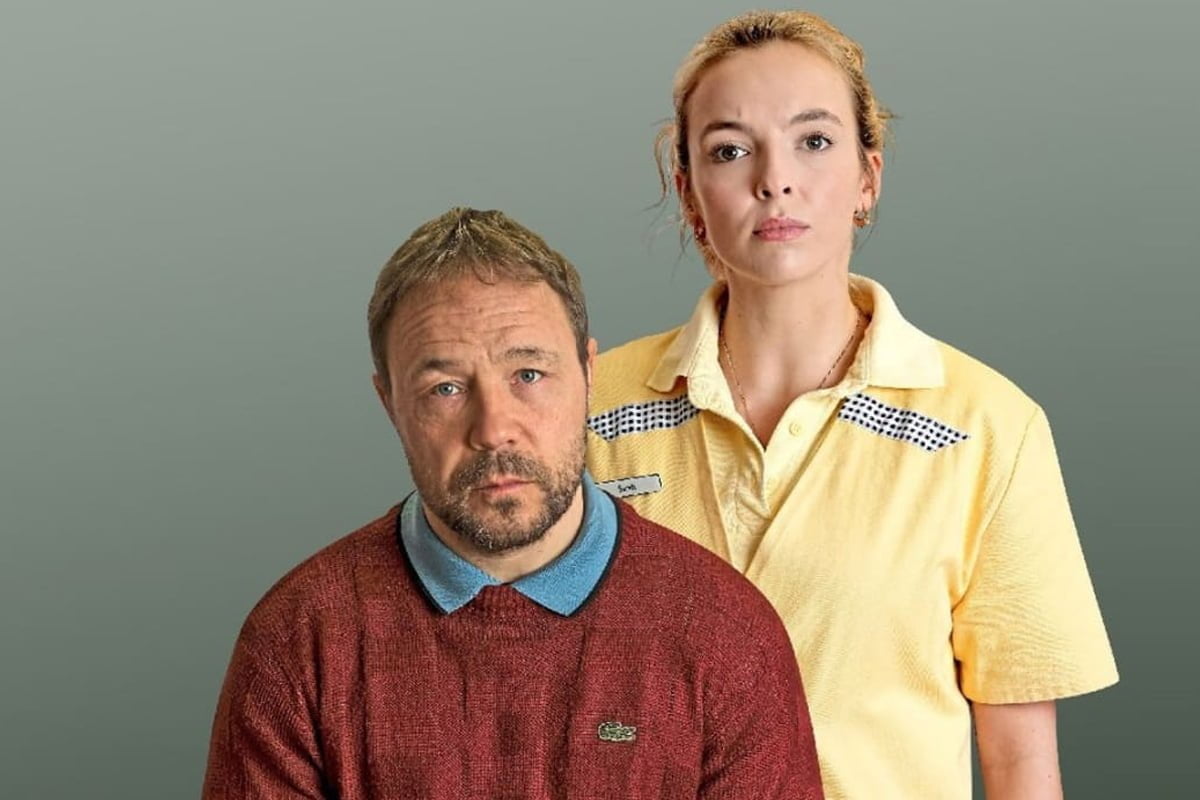‘Help’, a recently-released film from Channel 4, shines a light on the crisis that ravaged Britain’s care homes during the pandemic. To ensure safety and dignity for residents and staff, we must drive out the profiteers and fight for socialism.
Help is a new film that vividly portrays the devastation inflicted upon staff and residents in the private social care sector throughout the COVID-19 pandemic. The film, directed by Jack Thornley, is available to watch on All 4.
The film follows Sarah (Jodie Comer) as she gets employed as a carer at the fictional Bright Sky Care Home in Liverpool. Here she befriends Tony (Stephen Graham), a middle-aged resident with early-onset Alzheimer’s disease, who frequently attempts to escape the building to return to his deceased mother’s home.
While the workload is tough to begin with, the COVID-19 pandemic pushes the care home to its limits. The management at Bright Sky is caught totally unprepared, without any PPE. Completely inadequate social distancing and isolation measures are implemented.
Profits vs wellbeing

News of the allocation of hospital patients into private care homes disturbs Sarah. But the admission of new residents from hospitals is regarded light-mindedly by the manager Steve: “They just need to make space, get rid of a few long termers…this is us doing our bit. Most of them should have been out years ago, they’re just blocking up beds. We’re being useful.”
Steve’s attitude reflects the bureaucratic mentality of social care management, where efficiency is prioritised above safety. Residents are viewed as little more than human stock.
Although Steve continually stresses the importance of ‘dignity in care practice’, his total ignorance of it becomes evident in his treatment of both staff and residents.
It is the nature of Steve’s position as the manager – prioritising the maximisation of profit over concerns for the wellbeing of residents – that conditions his insensitivity to the human cost of the pandemic.
Privatisation and austerity

Upon experiencing a continuous cough, Steve self-isolates, and effectively leaves the Bright Sky Care Home in the carer’s hands. But as the carers start contracting COVID-19, Bright Sky ends up short-staffed.
Sarah is left alone on a night shift, and finds one resident Kenny suffering from severe coughing and high temperature. She calls NHS 111 and the COVID-19 helpline for an ambulance. But, with the existing pressure on NHS emergency services, she is told that none are available.
Despite the risks involved, Sarah wakes up Tony to help her reposition Kenny into a prone position to open up his airways. Unable to manage the stress, she breaks down in tears, and is found the next morning utterly exhausted by one of her colleagues.
This nightmare scenario will no doubt resonate with the experience of thousands of care staff across Britain during the pandemic. The burnout induced by increased workload and short-staffing is confirmed by a recent survey by Unison. 68% of respondents reported a decline in mental health during the pandemic, with symptoms ranging from anxiety to PTSD.
Sarah complains that private care homes are neglected as priorities by the NHS – a feeling confirmed for care workers by the whole experience of the pandemic. It is true that the entire care sector is in crisis, due to years of budget cuts and privatisation.
But in reality, it is a decade of Tory austerity inflicted upon the NHS that has decimated the ability of the healthcare system to cope with a pandemic. This explains why the Tories took the decision to squeeze non-critical patients into care homes, to ensure enough hospital beds would be available.
National Care Service

If this pandemic and the previous years of cuts have illustrated anything, it is that Tories will plunder from the working class all they can to maximise the profits of the ruling class, regardless of the human cost.
The film ends with statistics that the NHS was supplied with 80% of PPE produced during the pandemic, while the private social care sector was only supplied with 10%. Resentment about this becomes clear throughout the film, when paramedics appear in full protective body suits, while the care workers have to resort to wearing bin bags and go without masks.
Lastly, we are told that the average wage of a care worker in the UK is a disgraceful £8.50 per hour. For the thousands of care workers across the country who struggled throughout the pandemic, no amount of hollow praise can obscure this insult.
The only way to ensure dignity of residents and staff, as well as the adequate allocation of resources, is to drive out profiteers completely from the social care sector.
Private social care companies must be incorporated into a National Care Service. This should be run by the care workers themselves and publicly-owned within the NHS – funded by expropriating the wealth of the billionaires and bankers.
On the basis of a clear socialist economic plan – involving the nationalisation of the commanding heights of the economy, including the banks and financial institutions, under workers’ control – we could easily solve the care homes crisis, and provide proper care and treatment to the elderly, vulnerable, and all those in need.






